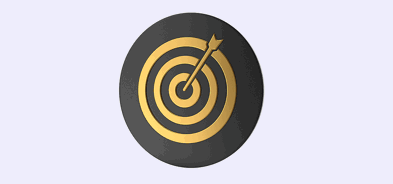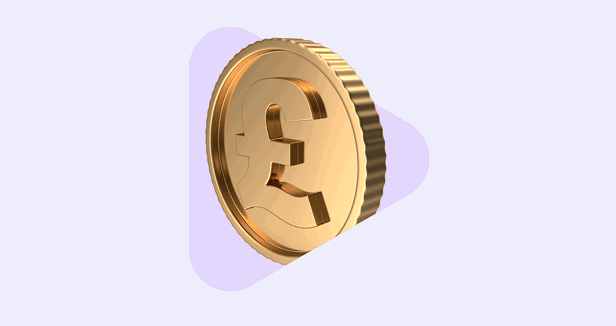
Self-invested Personal Pension (SIPP)
Planning ahead? Become a Bestinvestor with a SIPP and create a brighter financial future.
The value of your investments and the income from them may go down as well as up, and you could get back less than you invested.

What is a SIPP?
A SIPP (Self-invested Personal Pension) is a type of personal pension that gives you control over how you save for retirement and flexibility to choose how to take a pension income when you retire (currently at age 55, rising to 57 in 2028).
SIPPs are not suitable for everyone. If you don’t want to invest across different asset classes or don’t think you will make use of the investment choices that SIPPs give you, then a SIPP might not be right for you. They may also cost more than other pensions.

Is the Best SIPP the right choice for you?
Our SIPP has a minimum service fee of £10 per month (£120 per year). As a result, if you are not able to contribute at least £10,000 within 12 months of opening the account, either by way of lump sum(s), regular contributions, transfers in, or a combination, the Best SIPP is not good value for money due to the minimum service fee. The minimum service fee does not apply for Junior SIPPs.
Our SIPP could be right for you if you:
- Are looking to contribute a minimum of £10,000 within 12 months of opening the account
- Are comfortable with our fees including the minimum SIPP service fee of £10 per month
- Are comfortable making your own investment decisions
- Want access to a wide range of investments
- Have contributed enough to your workplace pension to receive the maximum benefit your employer will offer and looking to boost your retirement savings further. You will need to make sure your total contributions don’t exceed your annual allowance.
- Are self-employed and looking for a pension scheme to pay into
How to open a SIPP
1. Open your SIPP account online
It can take less than 10 minutes to open a SIPP online. You can start a transfer request when you sign up or leave this until a later date.
2. Choose your investments
Invest in a range of funds, shares, ETFs and Investment Trusts or let our experts manage your investments and pick a Ready-made Portfolio.
3. Retire with more options
You have the freedom to choose how to take money from your pension when you retire. Visit our pensions and retirement hub to learn more.
Your pension investment options

Build your own pension
Choose from 1000s of investments including funds, ETFs and investment trusts, plus UK and US shares. Get investment inspiration from The Best™ Funds List* to help you choose.
*The Best™ Funds List is a trademark of Bestinvest

Leave it to our experts
Our range of Ready-made investment portfolios are built and managed by the experts at our parent company, Evelyn Partners. Choose the investment that best matches your goals and attitude to risk.
Why choose a Bestinvest SIPP?
Low fees
Pay 0.2% in annual service fees for Ready-made Portfolios and 0.4% for other investments. Minimum fees apply.
A wide choice of investments
Pick your own investments or choose one of our Ready-made Portfolios.
Manage your SIPP with our mobile app
Keep track of your investments and manage your accounts while you're on the go with our mobile app.

Benefit from pension tax relief
Pensions come with generous tax allowances and reliefs to encourage us to save for retirement.
The Government gives you tax relief on pension contributions up to your annual allowance at a maximum of £60,000 or 100% of your earnings, whichever is lower. Anything you invest will be topped up by 20% automatically.
So for every £80 you put in, the government adds £20 making your total contribution £100.
If you’re a higher or additional rate taxpayer, you could claim 40% - 45% tax relief through your tax return.
It's worth remembering that pension and tax rules can change and the benefits you could receive depend on your circumstances. Contribution limits apply. Money in a pension is usually accessible from age 55 (57 in 2028).

How much does it cost to invest in a Bestinvest SIPP?
Our SIPP has a minimum service fee of £10 per month (£120 per year). The minimum service fee does not apply for Junior SIPPs.
Account services fees are charged as a percentage of the value of your investments in your account. The percentage charged depends on the value and type of investments you hold in your account. Our annual service fees are capped at 0.4% for funds and UK shares, and 0.2% a year for one of our risk-rated Ready-made Portfolios.
Other fees apply when you buy and sell certain investments.

Combine your pensions
If you already have a number of different pensions, you can bring them together into a Best SIPP and gain more control of your retirement investments. We’ll even pay up to £500 towards any exit fees that your existing providers charge. See the terms and conditions.
Before you consider transferring a pension, it is important to ask yourself:
- Will I lose any valuable benefits or features from my existing pension plan?
- Will I incur any penalties on my existing pension if I transfer?
- Is it an occupational final salary pension scheme? (In which case it is very unlikely to be advisable to transfer).
- Have I considered the charges on my current plan? (A new arrangement may be more expensive – especially if you have a stakeholder pension).
- Have I checked the investment options available and whether I need the wider choice offered by a SIPP?
- If the pension is an employer-related plan, have I checked if the employer will cease to pay in benefits if it is transferred elsewhere?

Get the best from your SIPP with a free coaching session
At Bestinvest you can benefit from free coaching. Whether you’d like to discuss your SIPP investments or how to better understand your financial plan and goals, our Coaches are here to help. You can even have a free Coaching session without joining Bestinvest.
Pensions explained
What types of pensions are there?
The state pension, workplace schemes and personal pensions all have very different purposes, features and benefits.
Pension reliefs and allowances explained
Pensions offer a range of tax benefits to encourage you to save towards the future. But you’ll need to stay within certain allowances to steer clear of any tax charges.
Understanding your options at retirement
You have the freedom to choose how to take money from your pension when you retire. Find out more about lump sum withdrawals, income drawdown, annuities or even staying invested.
SIPP FAQs
You can open a SIPP if you are:
- Between 18 - 75 years old
- UK resident
- UK tax payer
Before opening an account you should make sure you will use the extra control and choice that SIPPs give you. SIPPs are not suitable for everyone. If you don’t want to invest across different asset classes or don’t think you will make use of the investment choice that SIPPs give you, then a SIPP might not be right for you.
Every year you can contribute as much into your pension as you have earned, usually up to a maximum of £60,000. If you go over your allowance there will be a tax charge.
This £60,000 annual pension allowance is tapered down for higher earners. This is known as the tapered annual allowance.
The allowance reduces by £1 for every £2 of adjusted income above £260,000, down to a minimum of £10,000.
Investments in pensions grow free from income tax and capital gains tax.
The Government gives you tax relief on pension contributions up to your annual allowance. Anything you invest will be topped up by 20% automatically.
Higher-rate taxpayers can claim back another 20% through their self-assessment tax returns. Additional-rate taxpayers can claim back another 25% through their self-assessment tax returns.
Prevailing tax rates and reliefs depend on your individual circumstances and are subject to change.
The earliest you can access your SIPP is age 55, rising to 57 in 2028.
Yes, you can have a SIPP and a workplace pension and pay into both at the same time. Before you open and contribute to a SIPP it's worth checking that you are contributing enough into your workplace pension to receive the maximum benefits your employer will offer.
You will need to make sure your total contributions don’t exceed your annual allowance.